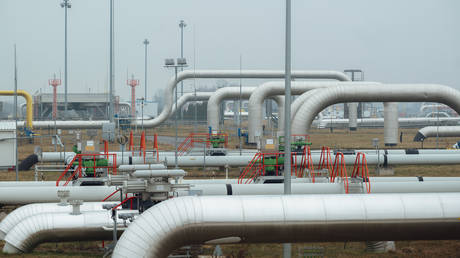
Bratislava’s energy giant plans to tap Gazprom for all imports, citing cost and competitiveness, the outlet has said
Slovakia’s largest natural gas company is planning to turn to Russia for 100% of its supplies next year, Bloomberg has reported. Company officials cited cost benefits as EU countries face a ban on spot purchases of Russian energy, the outlet said.
The EU aims to phase out Russian energy imports by the end of 2027 as part of its RePowerEU strategy. The plan includes a ban on new pipeline and LNG contracts with Moscow, as well as an end to imports under existing spot agreements. However, the scheme has faced pushback from Slovakia and Hungary. Both countries are expected to receive transitional exemptions, enabling them to continue to uphold long-term contracts with Gazprom.
The ban, set to take effect in January, could free up additional pipeline capacity for Slovakia’s Slovensky plynarensky priemysel (SPP) and Hungary’s MVM Magyar Villamos Muvek, the outlet said on Monday.
“Russian gas is the most cost-effective for us, which is why we prioritize it,” Michal Lalik, SPP’s trade director, told Bloomberg. “We could be buying 100% of our needs, that’s about 8 million cubic meters per day.”
Last week, Slovak Prime Minister Robert Fico said Bratislava had accepted guarantees from the European Commission to limit the impact of a halt in Russian gas supplies. As a result, Bratislava lifted its veto on the EU’s 18th package of sanctions against Russia.
Slovakia has resisted the EU’s push to sever energy ties with Russia, warning of severe economic consequences. Fico has condemned the bloc’s plan as “imbecilic,” saying it would undermine Slovakia’s energy security and destabilize the wider EU.
Slovakia, which still receives Russian gas via TurkStream under a long-term contract with Gazprom through 2034, warns that losing access to cheaper supplies would harm its competitiveness.
Without Turkstream, Slovakia would be forced to rely on western supply routes – mainly via Germany, Austria, and the Czech Republic – leading to higher transit costs.
“Price disparities within the supposedly unified European energy market will distort competition and severely weaken the position of Slovak companies,” said Roman Karlubik, vice president of the Federation of Employers’ Associations.




